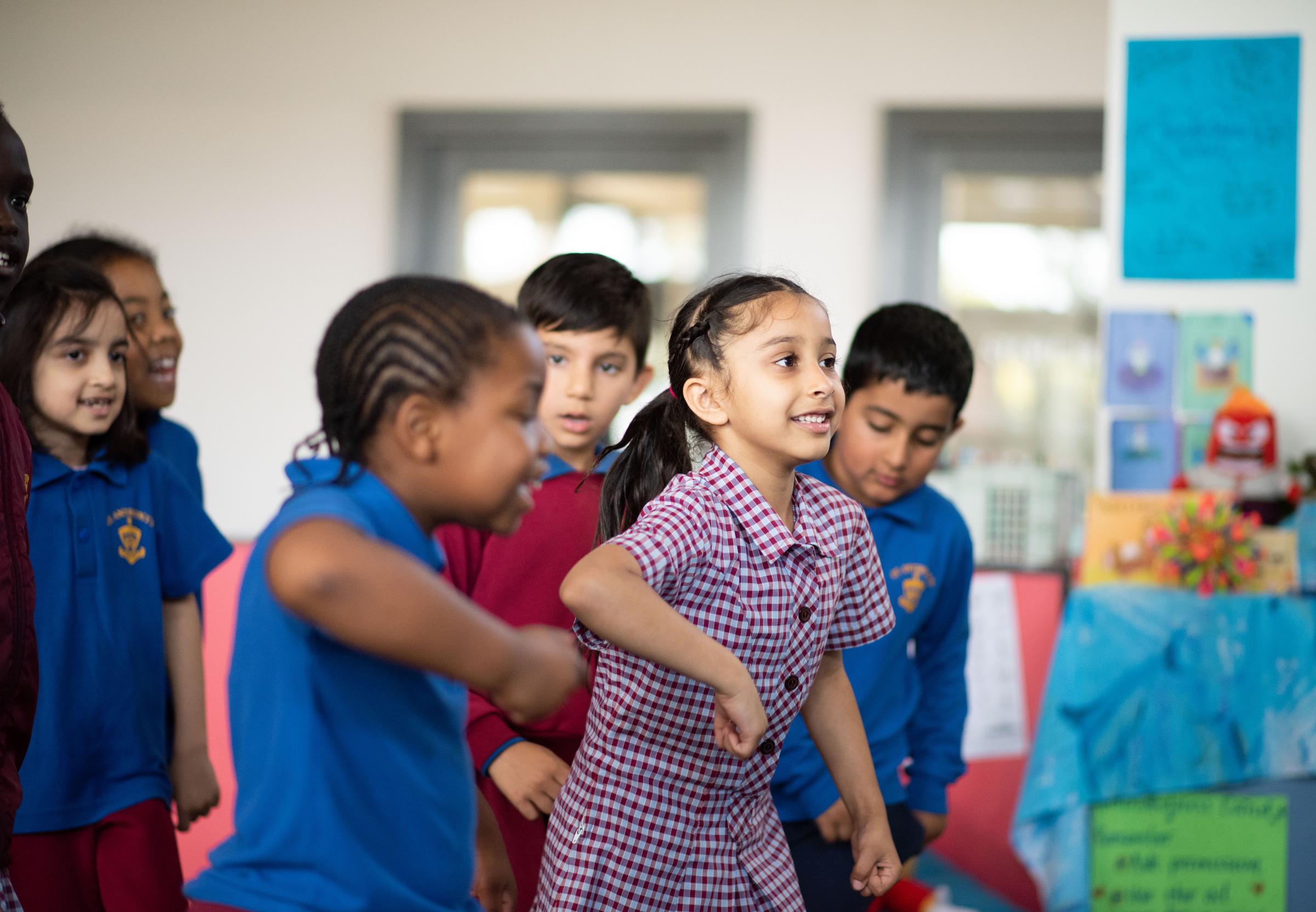Dear Families,
I hope you are all doing well, probably like me, working at home, helping my child with school and juggling lots of commitments.
As you are probably aware, I post a weekly meditation for families to enjoy together or individually every Monday on the school Dojo page. It is my pleasure to be able to help our community with mindfulness and wellbeing, it is one of the cornerstones of our Performing Arts program here at St Anthony’s and a unique part of how we love to teach!
As part of my work with the children I always use mindfulness as a tuning in activity, both at school and remotely. I am lucky as children often talk to me about how they feel, check in with their mental health, notice how they feel and get to track their moods. It is a real honour to be able to facilitate this extra and vital learning for our children, especially during this pandemic.
Learning that life has uncertainties is a resilience lesson to us all, and that is what we are learning with this situation in the world, mindfulness helps us navigate uncertainties by being aware, observing our reactions and being calm and present when emotions or thoughts that are uncomfortable arise.
I wanted to share this superb article with you all written by Jerome Schultz, PhD
is a clinical neuropsychologist and lecturer in the Harvard Medical School Department of Child Psychiatry. It may help you to see the positive side of our situation and give you some ideas on how to see the opportunities this situation creates for families.
Stay Safe.
Ms Victoria Gelberg Performing Arts and Mindfulness Teacher
The COVID-19 crisis has caused lots of stress, disruption, and loss for kids and families. Distance learning has had a major impact. While some kids have thrived, others have struggled.
But the pandemic has also created opportunities. Having more flexibility during the day means kids can explore new interests and skills. Here are six ways the pandemic can help kids build strengths.
1. More Time for Creativity
Telling jokes, making music, drawing, dancing, building. Creative activities let kids explore new ways to express themselves (and release some of the emotions they’re feeling). They may discover new talents and skills in the process, which can build self-esteem.
2. Less Pressure When Working on Life Skills
One benefit to having less structure is being able to work on life skills with less pressure. Everything from learning self-care routines to building organization skills can happen at a slower pace or at a time when you’re not rushing around.
And it’s not just about working on skills that need improving. Your child can spend this time mastering new tasks—from sewing a button to cooking a family meal. Every skill your child gains or improves can be a self-esteem booster.
3. New Ways to Improve Social Skills
Kids are more limited in how they interact because of the pandemic. But that doesn’t mean they’re not building social skills. Playing multiplayer video games or having family video calls are social situations. So are online classes. Each involves different social skills and social rules.
Socializing happens at home, too. More interaction with family provides extra practice with social skills. And if you or another caregiver are around more, you can help your child build those skills.
4. A Chance to Build Coping Skills
When kids feel ongoing anxiety, it can really take over. But finding ways to cope with emotions during tough times can let them come out of the crisis feeling stronger and more confident. They’ll know they have skills to deal with difficult situations. That’s both a relief and a strength.
You can help your child develop coping skills. One way is to model how to deal with uncertainty or handle bad news. Show how you handle the anxiety of the pandemic. And give your child ways to feel more in control.
5. More Space to Try, Fail, Learn
In traditional schooling, kids can spend a lot of time on tasks they don’t think they can do or do well. That’s especially true of kids who learn or think differently. They may worry that other kids can see them struggling. And that can make them withdraw.
Learning at home can reduce that worry and give kids the room to try, fail, and learn without feeling embarrassed. They may also be more likely to recognize their weak spots and ask for help. This can help them build self-awareness, confidence, and resilience.
6. New Ways to Learn Empathy
For some kids, empathy is a natural strength. For others it’s a skill they need to learn. The pandemic creates new opportunities for kids to help others and think beyond themselves.
Checking in with an elderly neighbour, dropping off food to people who are sick, comforting friends who are feeling down. Any act of kindness your child can do builds empathy. Just knowing that this crisis impacts everyone can help kids think about how other people are struggling with it.

